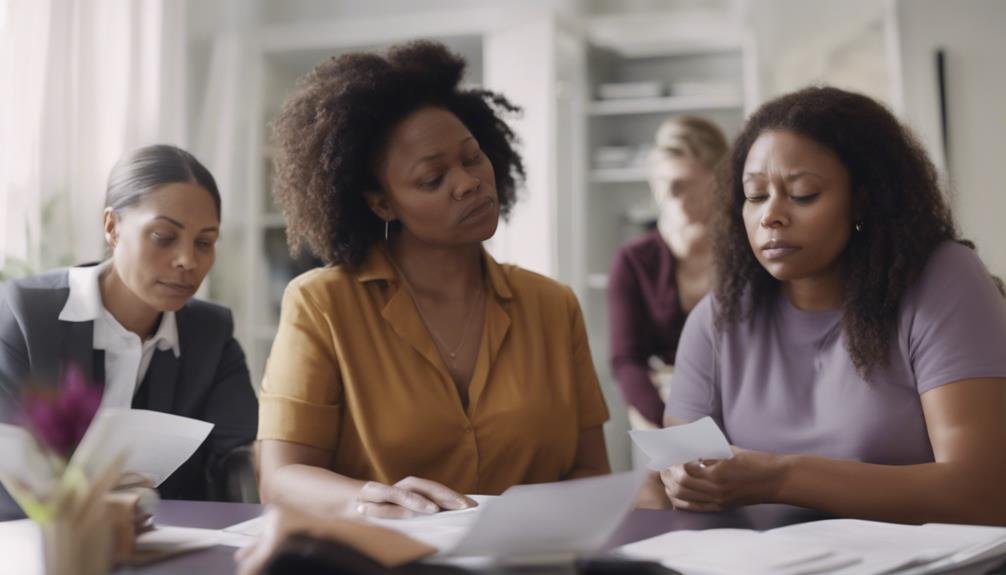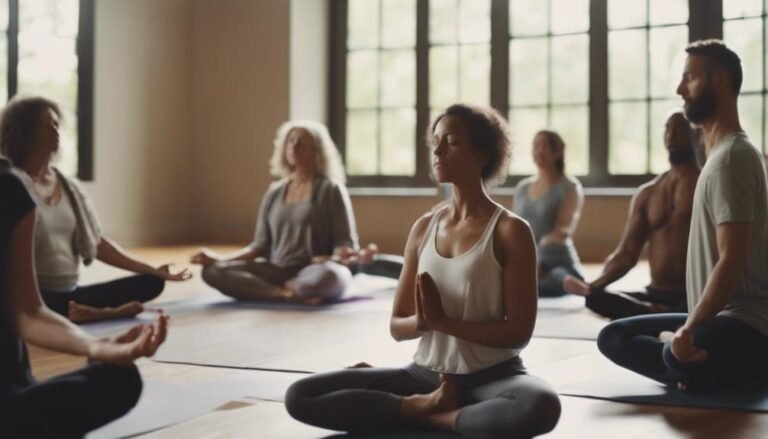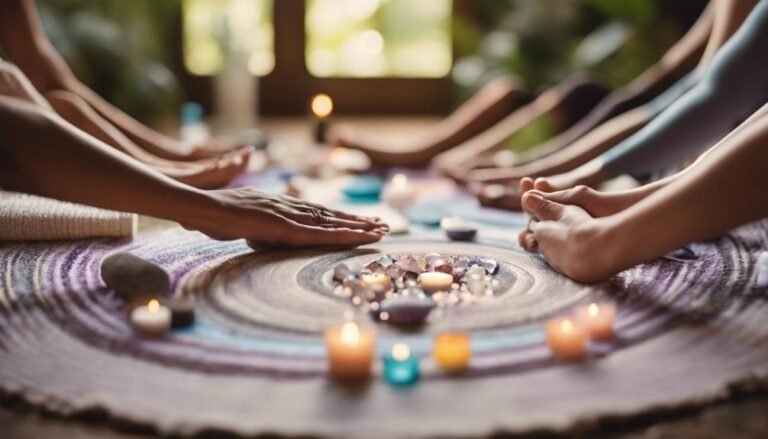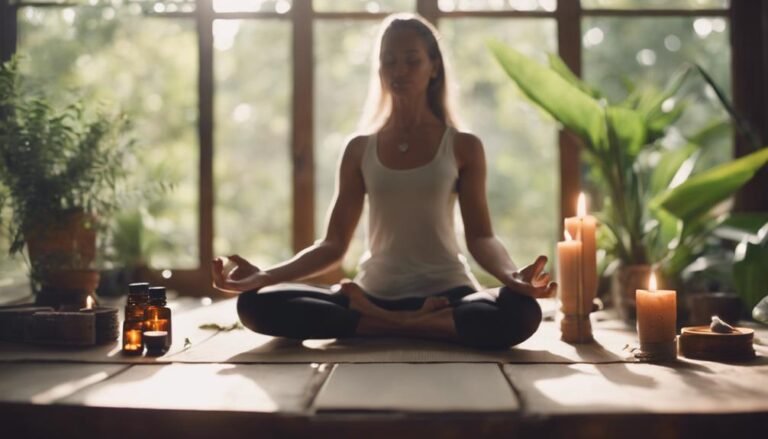Facing domestic violence? Remember these tips. Know your legal rights—it’s crucial for your safety. Seek protective orders promptly. Get legal help managing family law matters. Create a safety plan for emergencies. Find support from organizations offering resources. Seek advocacy for your situation. Deal with stalking problems with legal remedies. Address identity theft concerns with expert help. Let legal aid guide you through processes. More tips await to empower you and secure a safer future.
Key Takeaways
- Seek free legal services from advocacy organizations for protective orders.
- Develop a safety plan with support organizations for immediate assistance.
- Understand legal rights and remedies for stalking issues.
- Prioritize well-being by addressing identity theft concerns with legal help.
- Empower yourself with specialized legal aid for informed decisions.
Understanding Legal Rights
Understanding your legal rights as a domestic violence survivor is essential for successfully maneuvering through the legal system and seeking protection from your abuser.
In the domain of domestic violence, legal advocacy plays a pivotal role in supporting survivors like yourself. Legal aid organizations, such as AVDA, are dedicated to providing survivors with free legal services, ensuring they comprehend and exercise their rights.
Through legal advocacy programs, survivors can access essential resources like legal representation, safety planning, counseling, and referrals to social services.
Seeking Protective Orders
When seeking protective orders as a domestic violence survivor, it’s important to understand how these legal documents can provide essential protection from your abuser. Protective orders serve as a key tool in ensuring your safety and well-being by legally restricting the contact and behaviors of the abuser. These orders may include provisions like no contact, staying away from your home or workplace, and surrendering firearms to prevent further harm.
As a survivor, seeking legal aid can greatly assist you in maneuvering through the process of obtaining a protective order. Legal aid organizations specializing in domestic violence cases can provide valuable support and guidance to help you understand your rights and options. They can assist you in completing the necessary paperwork, preparing for court appearances, and ensuring that your voice is heard throughout the legal proceedings.
Navigating Family Law
Understanding family law procedures can be complex, especially for survivors of domestic violence seeking legal protection and support. When it comes to family law matters like child custody and protective orders, it’s important to know your rights and seek proper legal representation.
Family law attorneys play a significant role in helping survivors navigate the legal system, ensuring their safety and well-being. They can assist in securing custody arrangements that prioritize the best interests of both the survivor and their children, as well as financial support to aid in rebuilding their lives.
For survivors of domestic violence, accessing specialized legal aid services is essential. These organizations offer tailored support to handle family law cases effectively, empowering survivors to make informed decisions about their future.
Safety Planning Strategies
Identifying safety areas and risk areas in your home is essential to creating a secure environment for yourself and your loved ones. Start by evaluating your living space to determine where you can seek refuge in case of emergency.
Keep emergency contacts readily available for immediate assistance during incidents. This could include local law enforcement, trusted friends or family members, and domestic violence hotlines. Utilize a Personalized Safety Plan Template to outline specific steps for protection tailored to your situation.
When planning for safety, it’s important to prioritize child safety during abusive situations. Have a plan in place to guarantee their well-being and protection. Teach them how to seek help and establish safe spaces within the home.
Proactive safety measures are crucial in protecting yourself during physical abuse incidents. Consider strategies like creating code words with trusted individuals, practicing escape routes, and having a bag packed with essentials ready to go.
Your safety and the safety of your loved ones are of utmost importance.
Accessing Support Organizations

To connect with essential resources and assistance, reach out to support organizations specializing in aiding domestic violence survivors. These organizations offer a range of services tailored to meet the unique needs of survivors, including legal aid, counseling, safety planning, and referrals to other essential services.
By reaching out to support organizations, you can access free and confidential support 24/7, providing you with the assistance and guidance needed to navigate your situation effectively.
One valuable resource to tap into is the domestic violence hotline, which can connect you with trained advocates who can offer immediate support, safety planning tips, and information on legal options available to you.
Support organizations play an important role in empowering survivors like yourself to seek help, break the cycle of abuse, and move towards a safer and more secure future.
Identifying Legal Options
Explore the legal options available to you as a domestic violence survivor, including protective orders, custody rights, divorce proceedings, and addressing immigration concerns.
Aid for survivors is accessible through organizations like Lone Star Legal Aid and AVDA, offering free legal services for survivors in specific Texas and Arkansas counties. These services can help you with obtaining protective orders, managing divorce proceedings, securing custody and visitation rights, addressing child support, and handling adoption matters.
Eligibility criteria for legal services may vary but often require demonstrating a pattern of abuse, meeting residency requirements, having knowledge of the abuser’s whereabouts, and meeting income thresholds.
Legal advocates can support you in documenting instances of abuse, creating safety plans, providing counseling, and representing you in court proceedings.
Remember that you aren’t alone in this journey, and there are support groups and legal services available to assist you every step of the way.
Advocacy for Victims
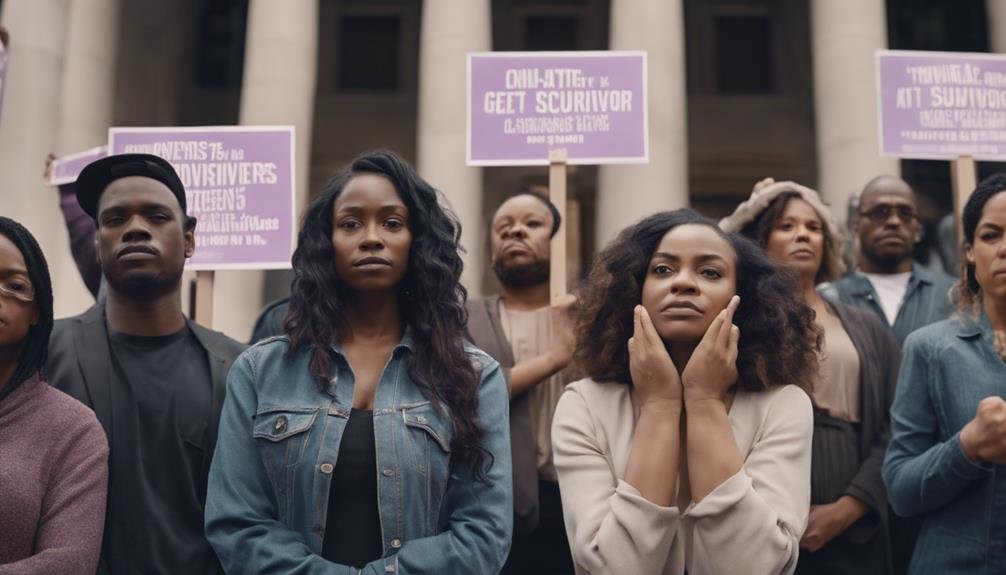
As a survivor of domestic violence, seeking advocacy can provide essential support and guidance in managing legal processes and ensuring your safety and well-being. Legal representation is vital for obtaining protective orders, managing divorce, child custody, and adoption proceedings. Organizations like AVDA offer individual Safety and Self-Sufficiency Plans, emergency referrals, financial assistance, and advocacy with authorities.
To be eligible for legal services, you must have experienced abuse or have abused children, meet residency requirements, and know the abuser’s whereabouts. AVDA aims to provide quality legal services regardless of income level, assisting with protective orders, safety planning, and legal guidance. Legal advocates work closely with clients to document abuse, explain rights, offer counseling, gather evidence, prepare cases, and provide representation in court.
Dealing With Stalking Issues
Dealing with stalking can be frightening and overwhelming, but remember that you aren’t alone in this. Safety planning strategies can help you stay protected and feel more secure in your daily life.
Understanding the legal options available, such as protective orders, can empower you to take action and safeguard yourself from further harm.
Safety Planning Strategies
Enhance your safety planning by incorporating specific strategies to address stalking issues effectively. When creating your safety plan, make sure you identify safe areas in your home and keep emergency contacts readily accessible. It’s important to take steps to protect yourself during incidents of physical abuse and prioritize the safety of any children involved.
Utilize a Personalized Safety Plan Template to tailor safety measures to your unique situation, making the plan more effective.
In dealing with stalking issues, be cautious of monitored computer use and take steps to maintain the privacy of your online activities. Seek support from organizations like AVDA for safety planning and legal guidance on handling stalking situations.
Legal Options Available
Explore the legal options available to you when dealing with stalking issues, empowering you to take proactive steps towards your safety and well-being. As a survivor, it’s essential to know that there are specific legal remedies in place to provide support and protection.
One of the key options includes obtaining protective orders that specifically address stalking behaviors, offering you a legal shield against your perpetrator. Since stalking laws vary by state, seeking legal assistance can help you understand your rights and the protections available under relevant statutes.
Remember, as a survivor of stalking, you may be eligible for legal aid services that can assist you in understanding the legal system and ensuring your safety. Legal advocates can also help you document and report instances of stalking to law enforcement for further action.
Addressing Identity Theft Concerns
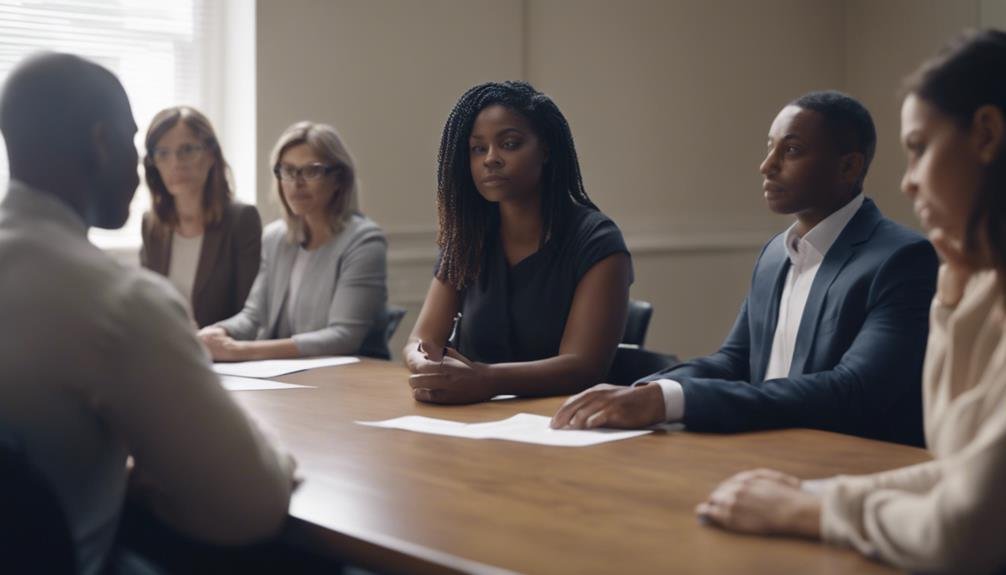
To address identity theft concerns as a domestic violence survivor, it’s vital to take immediate steps to safeguard your personal information and prevent further harm.
Identity theft can exacerbate the challenges you already face, as abusers may misuse your information for their gain.
Seek legal assistance to help you navigate through this complex issue and take the necessary steps to recover from the damage done.
By understanding the signs of identity theft and knowing how to report and address it, you can empower yourself to regain control of your financial and personal information.
Remember, you aren’t alone in this, and there are resources available to support you through this process.
Taking proactive measures to protect your identity is essential in ensuring your safety and security as you work towards rebuilding your life free from abuse.
Guiding Through Legal Processes
Understanding the legal system can feel overwhelming, but remember, you’re not alone. Legal advocates are here to simplify the process and guide you through each step with care.
Together, we’ll work towards securing your safety and rights.
Legal Steps Simplified
Throughout the legal process, you’ll be guided step-by-step by AVDA’s dedicated team of paralegals and attorneys. They are there to assist you in documenting abuse, understanding your rights, and representing you in court for various cases related to domestic violence.
The process begins with documenting the abuse you have experienced, which is essential for building a strong case. AVDA’s legal advocacy program also involves safety planning to guarantee your well-being during this time.
In addition to providing emergency shelter and support, AVDA offers free legal representation for cases such as protective orders, divorce, child support, custody, and adoption.
Navigating Court Procedures
As you prepare to face court procedures related to domestic violence, rest assured that AVDA’s legal advocates are here to guide you through the complexities of the legal system, providing support every step of the way.
Understanding court procedures can be overwhelming, but you don’t have to go through it alone. Our team will help you comprehend your legal rights, assist with safety planning, and prepare you for every aspect of the legal process.
Whether it’s filing for protective orders, handling divorce proceedings, addressing child custody matters, or managing adoption cases, our attorneys and paralegals are dedicated to supporting you. They’ll gather evidence, offer ongoing safety planning, provide advice, and represent you in court proceedings.
Frequently Asked Questions
How Can I Protect My Children During a Protective Order Process?
To protect your children during a protective order process, focus on child custody and safety measures. Build a strong support network, seek legal assistance, utilize counseling resources, and practice protective parenting. You are not alone in this journey.
Can I Get Legal Aid Even if I No Longer Live With My Abuser?
You’d think leaving your abuser means waving goodbye to support, right? Wrong! Even if you’ve flown the coop, legal aid offers financial assistance, legal representation, counseling, housing options, safety planning, and emotional support.
What Steps Should I Take if My Abuser Violates a Protective Order?
When your abuser violates a protective order, prioritize your safety. Document all incidents and seek support from court options. Report violations promptly to authorities to guarantee legal repercussions. Your safety matters most.
How Can I Secure My Personal Information to Prevent Identity Theft?
To safeguard your personal information like a fortress, prioritize online security. Strengthen privacy protection measures to prevent identity theft. Stay vigilant with cyber safety practices to thwart fraud and guarantee your information remains secure.
What Can I Do if I Feel Overwhelmed by the Legal Process?
When feeling overwhelmed by the legal process, remember to prioritize self-care. Seek emotional support through therapy. Utilize legal advocacy and community resources. Practice coping mechanisms to navigate challenges. You are not alone.
Conclusion
Remember, you aren’t alone in this journey. By understanding your legal rights, seeking protective orders, and accessing support organizations, you’re taking important steps towards your safety and well-being. Stay strong and know that there are resources available to help you navigate the legal system and protect yourself from further harm.
You deserve to live a life free from violence and fear. You’re brave, resilient, and deserving of peace.

